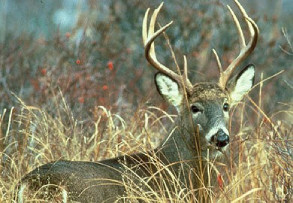SCDNR News
Hunters, processors should be aware of restrictions on importing deer carcasses from NC to SC
September 14, 2022

Hunters, processors and taxidermists should be aware of new restrictions on bringing deer carcasses from North Carolina into South Carolina.
With North Carolina’s first positive cases of chronic wasting disease (CWD) this year, the state joined a list of what is now 30 states and four Canadian provinces with restrictions on importing deer carcasses into South Carolina. The measures are meant to help prevent CWD from spreading to the South Carolina’s deer population.
What is allowed to come into South Carolina:
- Quarters (hams and shoulders) or other portions of meat with no part of the spinal column or head attached.
- Meat that has been boned out.
- Hides with no heads attached.
- Clean skulls with no meat or tissue attached, clean skull plates with antlers attached, antlers detached from the skull plate and finished taxidermy heads.
What IS NOT allowed to come in from North Carolina or any other state with CWD cases:
- Any whole deer, field dressed deer or intact carcass.
- Any deer head except finished taxidermy, clean skulls or clean skull caps.
- Any portion of the neck or spine.
The restrictions are aimed at preventing the deer parts with the highest risk for carrying CWD infection from entering the state.
CWD is a transmissible and always fatal neurological disease that affects cervids, including white-tailed deer. The disease is slow to advance and infected deer may appear healthy, making proper transport or disposal important.
An infected carcass or carcass part, if not disposed properly, can contaminate the environment, persist for years and potentially infect deer in the area.
South Carolina has regulated the transportation of hunter-harvested deer, elk and moose from CWD-positive states since 2004. This year, state lawmakers stiffened the penalty for violating the restrictions.
Violating the state statute is a misdemeanor and punishable by a fine of up to $500 or up to 30 days in jail. Read the full text of the law here.
For more information, visit www.dnr.sc.gov/cwd/index.html. For information from North Carolina, visit www.ncwildlife.org/Hunting/Chronic-Wasting-Disease.



